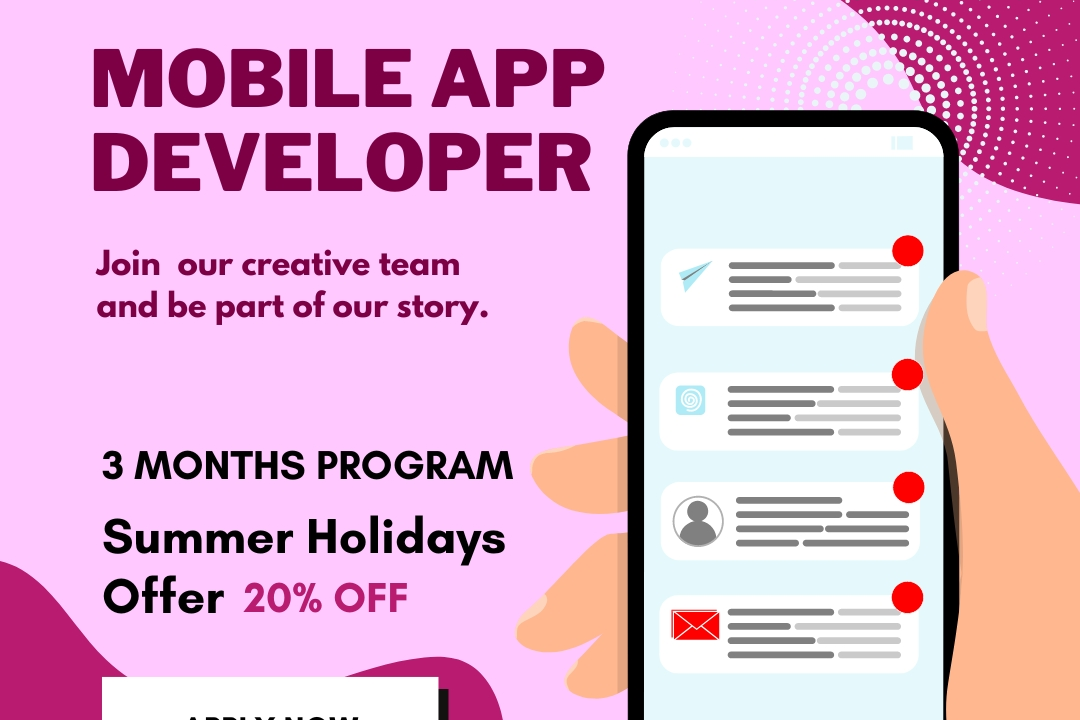Advanced Android Development
Mastering Advanced Android Development
Advanced Android Development
Advanced Android development encompasses the creation of complex and feature-rich applications that leverage the full potential of the Android platform. This includes utilizing advanced features like Jetpack libraries for architecture components, dependency injection with frameworks like Dagger or Hilt, real-time data handling with LiveData and Coroutines, and implementing modern UI techniques with Jetpack Compose or XML layouts. Developers also focus on performance optimization, integrating cloud services and APIs, managing multi-threading effectively, and ensuring responsiveness across various devices. Additionally, advanced techniques involve utilizing Android's architecture patterns (MVVM, MVP) for better code maintainability, and employing tools for testing, debugging, and monitoring app performance in production.
To Download Our Brochure: https://www.justacademy.co/download-brochure-for-free
Message us for more information: +91 9987184296
1 - Overview of Advanced Concepts: Introduce students to what constitutes advanced Android development including complex UI design, data management, and performance optimization.
2) Jetpack Components: Explore Android Jetpack libraries that simplify Android app development, including lifecycle management, navigation, and architecture components.
3) Kotlin Coroutines: Teach students how to use Kotlin coroutines for managing asynchronous programming and handling background tasks efficiently.
4) Dependency Injection: Explain the importance of dependency injection in Android apps using tools like Dagger 2 or Hilt for better code management and testing.
5) Architecture Patterns: Cover advanced architectural patterns like MVVM (Model View ViewModel), MVI (Model View Intent), and Clean Architecture, along with best practices for implementation.
6) Custom Views and Canvas Drawing: Guide students in creating completely custom views and leveraging the Canvas API for complex UI designs.
7) Room Database: Introduce students to Room, the SQLite object mapping library, and teach them how to create, read, update, and delete data efficiently.
8) Retrofit and Networking: Explain how to integrate the Retrofit library for making network requests and handling APIs, including best practices for error handling and data parsing.
9) Testing Strategies: Discuss different testing strategies for Android including unit testing, UI testing with Espresso, and integration testing using frameworks like Mockito.
10) Background Services: Teach about scheduling background tasks using WorkManager, and explain how to create foreground and background services effectively.
11) Security Best Practices: Cover advanced security practices, including data encryption, using Secure SharedPreferences, and managing sensitive information responsibly.
12) Performance Optimization: Teach techniques for optimizing app performance, including memory management, reducing APK size, and using tools like Android Profiler.
13) Multithreading and Concurrency: Explain threading models in Android, including the use of Handler, AsyncTask (avoiding where necessary), and correct use of Kotlin's coroutines.
14) App Distribution and Publishing: Discuss the process of preparing an app for release, including signing APKs, using the Google Play Console, and understanding policies and guidelines.
15) Integrating with Third party Libraries: Familiarize students with integrating various third party libraries for analytics, crash reporting, and UI enhancements (e.g., Firebase, Glide, etc.).
16) Material Design and Modern UI: Teach students about Material Design principles, including how to implement modern UI components and adapt the app for different screen sizes.
17) Internationalization and Localization: Explain how to prepare applications for multiple languages and locales to reach a broader audience.
18) Real time Data with WebSocket: Introduce students to using WebSocket for real time communication in apps like chat applications.
19) Handling Multiple API Versions: Teach strategies to manage compatibility with various API levels and devices, including feature flags and runtime permissions.
20) Collaborative Development Tools: Encourage using Git and collaborative development tools to work effectively in a team environment.
This curriculum provides a comprehensive foundation for students to advance their Android development skills and prepares them for real world applications.
Browse our course links : https://www.justacademy.co/all-courses
To Join our FREE DEMO Session: Click Here
Contact Us for more info:
Cheapest Online iOS Training Institute in Coimbatore
FLUTTER TRAINING IN VALPARAI
java training institutes in noida
MUMBAI TRAINING INSTITUTE JAVA
REAL TIME PROJECT IN ANDROID











